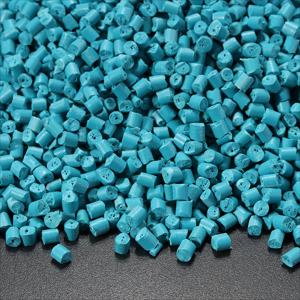US importers stockpiling goods to avert autumn shortages amid tariff chaos
The first signs of guidance on how tariffs could play out over the next few months was issued this week by a leading expert on US trade policy.
At a webinar organised by the European Shippers’ Council (ESC), Eugene Laney, CEO of the American Association of Importers and Exporters (AAIE), said his organisation was beginning to get a sense of where US tariff levels will eventually settle.
With the 90-day pause of the US’s so-called reciprocal tariffs on its trade with the rest of world set to expire on 9 July, and the 90-day window of reduced tariffs between China and the US due to expire on 12 August, Mr Laney said: “We really believe the place that they’re going to settle on 9 July will be 50% for China and 10% for everyone else.
“But, of course, all of this can change, as we’ve seen over the last few weeks,” he added.
Describing the 145% tariff on Chinese imports as “basically an embargo”, Mr Laney explained some of the knock-on effects the tariff chaos had had on American importers, and why so many smaller firms immediately cancelled shipments.
“There’s a huge cost for US importers, as it relates to import bonds – every time the tariffs go up here in the US, you need an import bond to facilitate that customs transaction at the border,” he said.
US Customs and Border Protection (CBP) agency requires a bond, which will cover all duties on any import valued at more than $2,500, and can either be bought on a single-entry basis, or annually, covering multiple imports.
“If you’re bringing in $3m of imports and then the tariffs go up 145%, you then have to increase your import bonds, and you have to carry that bond for up to a year,” said Mr Laney.
“We’re seeing a lot of companies having to put down higher collateral to get these import bonds, and we’re also seeing a lot of small- and medium-sized businesses unable to meet collateral needs to get a bond, so they’re being forced to walk away from some imports.” he said.
He warned that this would likely lead to some shortages of products – particularly low-value items – across the US in the coming months, as the tariff shock worked through the supply chain and importers focused on higher-value goods, with which they were more confident of being able to pass on the tariff cost increases.
“If they bring goods in, they’re focusing more on the premium imports. In other words, imports where they can pass on the tariffs into the price; versus the low-cost consumer goods, which you’re seeing being removed from a lot of the imports because you’re not going to be able to recoup your costs.
“We undoubtedly think you’re going to see some summer and autumn shortages of goods. I know the news is predicting that’s not going to happen, but the reality is that it will, because you’re just not seeing the type of velocity of goods coming into the US. What you’re seeing is everyone trying to stockpile, to try to make it through the best way they can through autumn and summer,” he said, and added that efforts to try and get exporters to US to absorb some of the higher costs had largely failed.
“They’re having a hard time applying pressure on suppliers, mainly because we’re seeing a lot of suppliers fearing national retaliation. A lot of Chinese suppliers have the Chinese government telling them they cannot absorb those tariff costs.
“We’re seeing that in other countries – most foreign suppliers are not absorbing the cost. They’re asking US importers to take on that cost. There’s not a true share burden around the tariffs,” he said.


